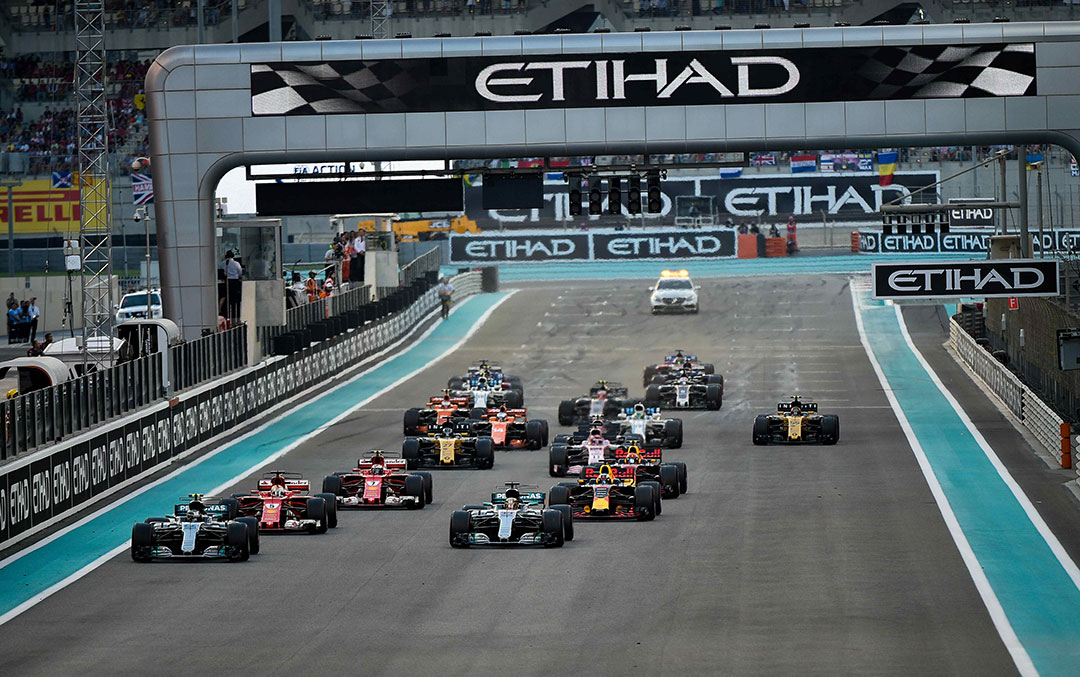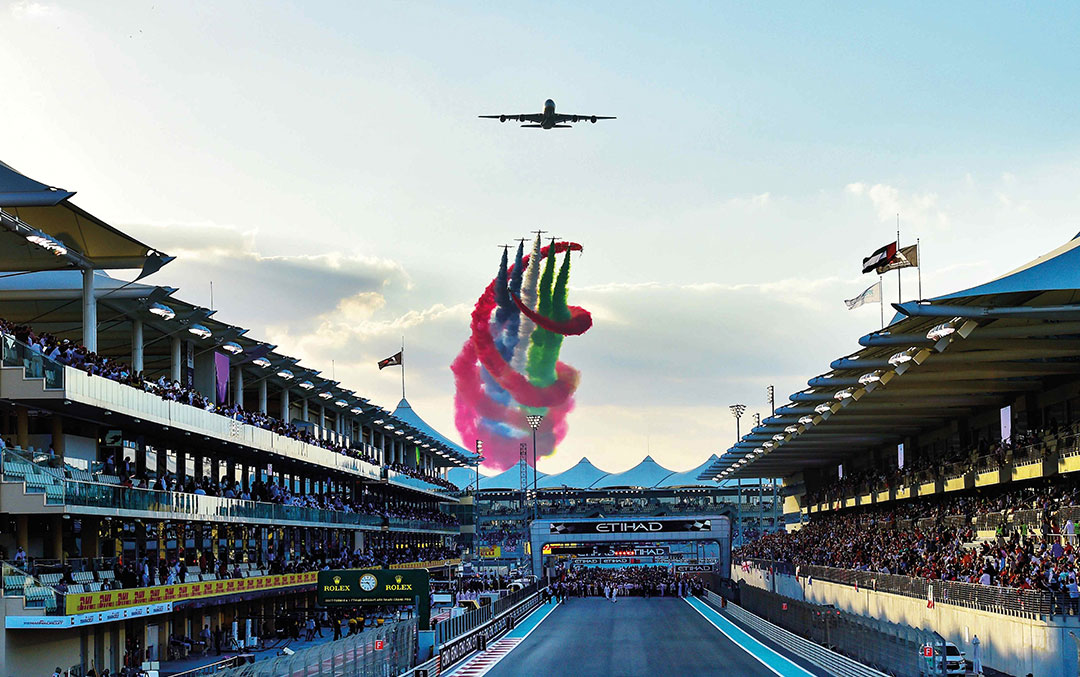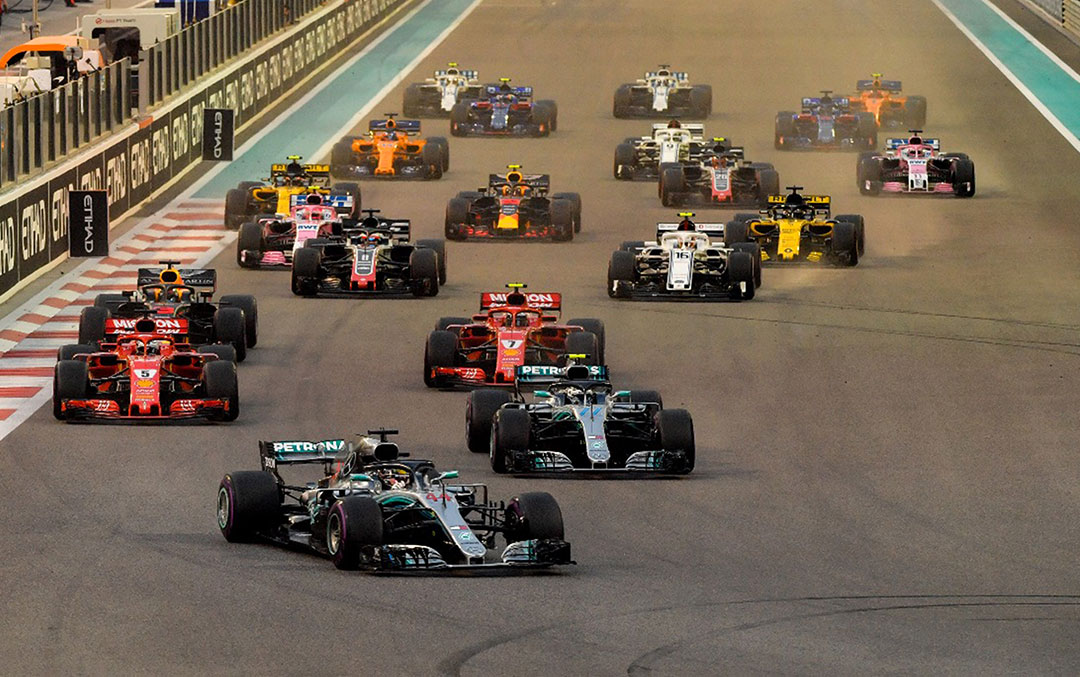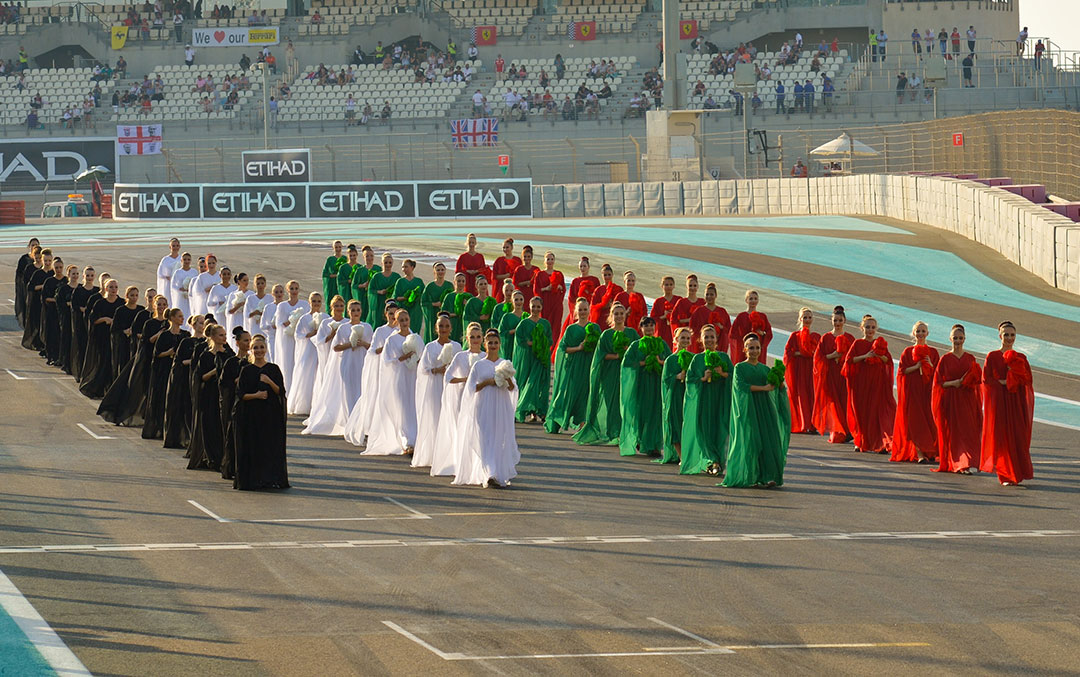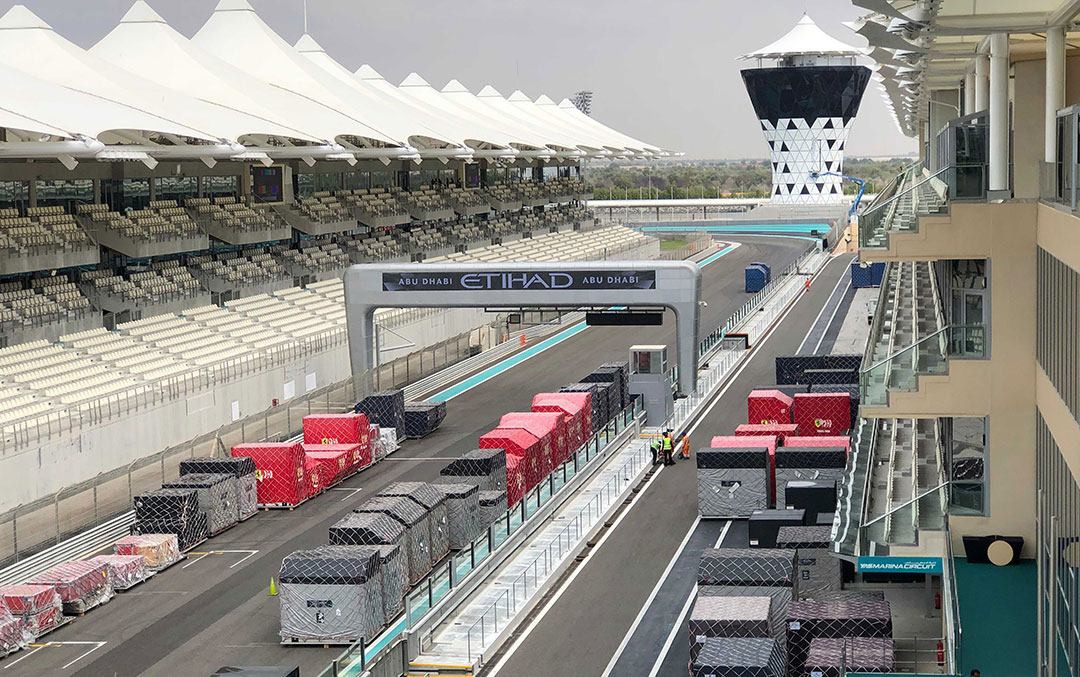F1 Abu Dhabi Grand Prix: All you need to know
By Shyam A. Krishna, Senior Associate Editor; Jai Rai, Assistant Editor and
Vijith Pulikkal, Assistant Product Manager
The 15th edition of 2023 Abu Dhabi Grand Prix takes place at the Yas Marina Circuit
on Yas Island on Sunday, November 26.
Here’s everything about the F1 season finale.

HOW THE TOP DRIVERS FARED
Red Bull’s Max Verstappen has lorded over the 2023 season, winning 18 of the 21 races as the F1 caravan rolls into Abu Dhabi. The world champion has added a third Drivers’ title in Qatar. His teammate Sergio Perez and Lewis Hamilton of Mercedes have taken the second and third places. Here is a rundown on how the top 10 drivers fared this season ahead of the finale on November 26. The 58-lap, 306.183km race will be held at the Yas Marina circuit from November 24-26.
The TOP 10 DRIVERS
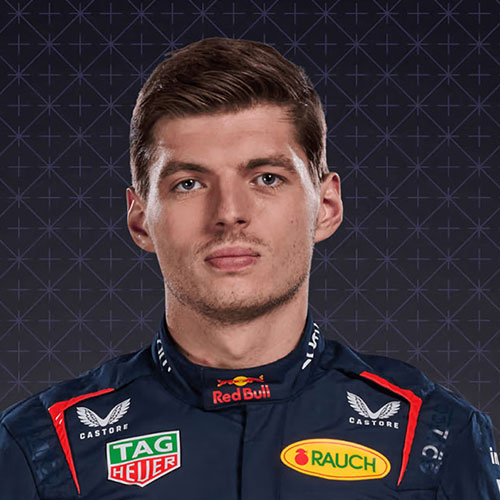
1- Max Verstappen | Red Bull Racing
Max Verstappen has been dominant since Miami, winning 18 of the 21 races. A controversial final-round showdown with Lewis Hamilton in the 2021 Abu Dhabi Grand Prix landed him the first F1 drivers’ crown. He followed it up in 2022 with a powerhouse title defence, winning a record 15 races.
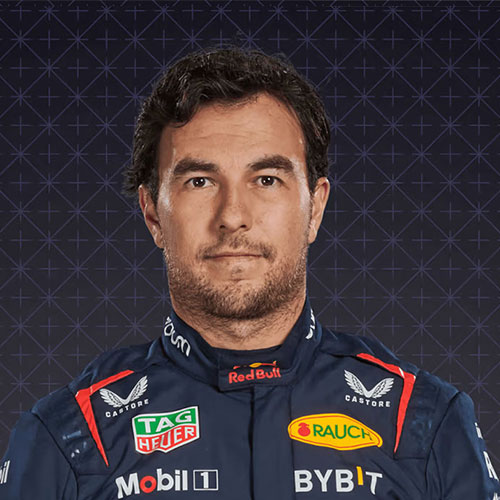
2- Sergio Perez | Red Bull Racing
After a record-breaking season in 2022, Sergio Perez made a brilliant start to the season, winning two of the first four races. But in five successive qualifying sessions, he struggled. However, the Mexican finished third in Las Vegas to retain the second spot in the points table.

3- Lewis Hamilton | Mercedes
After a miserable 2022 campaign, the seven-time world champion’s dream of winning a record-breaking eighth F1 drivers’ world championship continues unfulfilled. Despite a win-drought since the 2021 Saudi Arabian GP, Mercedes extended Hamilton’s contract until 2025.
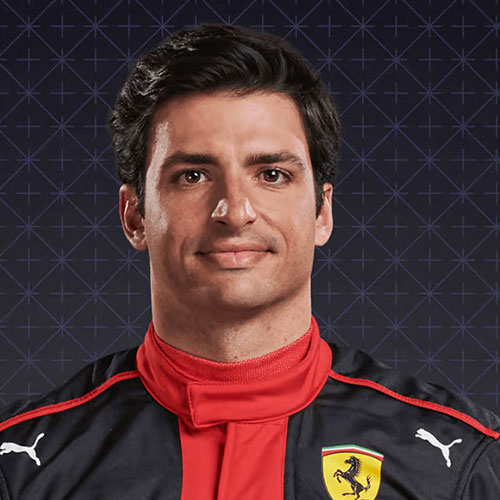
4- Carlos Sainz | Ferrari
After securing a maiden pole position, the Spaniard claimed his first win at the 2022 British Grand Prix. With nine podiums and a P5, 2022 was his best-ever season. His second career win was at the 2023 Singapore Grand Prix, which ended Max Verstappen’s win streak.

5- Fernando Alonso | Aston Martin
Fernando Alonso’s move to Aston Martin for the 2023 season saw six podium finishes in the first eight races. But as rival teams improved, Aston Martin lagged in the development race. But Alonso continues to dominate teammate Lance Stroll.

6- Lando Norris | McLaren
After a disastrous start to the season, Norris took the fourth place. Then he claimed successive second-place finishes in Britain and Hungary before following it up with podium finishes in Singapore, Japan, the US and Brazil. The McLaren driver has an ‘open invitation’ to join Red Bull.

7- Charles Leclerc | Ferrari
The Ferrari sensation spent the first half of 2022 in a title battle with Verstappen, but 2023 has been a reality check. Leclerc claimed a second pole position in Belgium and backed it up with podium finishes in Belgium, Mexico and Las Vegas.
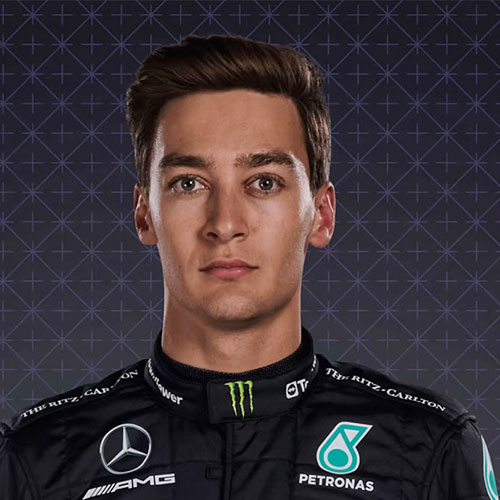
8- George Russell | Mercedes
Russell was at his best last season, outperforming teammate Lewis Hamilton. He has struggled to maintain the flawless form after an engine failure ruined an impressive weekend in Australia. His only podium of the season came in Spain.

9- Oscar Piastri | McLaren
Piastri has put together an impressive debut campaign in F1 with teammate Norris. The Australian rookie was unlucky to miss his first podium at Silverstone. He later took the podium on consecutive races in Japan and Qatar.
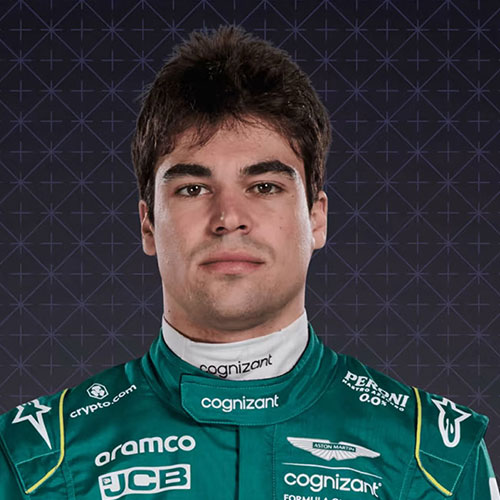
10- Lance Stroll | Aston Martin
After a pre-season cycling accident, which almost threatened Stroll’s career, he made a remarkable recovery to take sixth at the opening race in Bahrain and fourth in Australia. But since then, it has been largely downhill for Stroll and finished above ninth on just two occasions.

The Race
The Etihad Airways Abu Dhabi F1 is the sport’s first twilight race and joined the calendar in 2009 at the newly built Yas Marina Circuit on Yas Island.
The event is now firmly established as the final race of the season. The organisers agreed a new multi-year agreement to keep Abu Dhabi on the Formula 1 calendar for the foreseeable future.
The Circuit
Designed by Hermann Tilke, it’s one of the most technologically-advanced racing circuits. The construction cost $1.322 billion makes it the most expensive circuit ever built.

The circuit is equipped to hold races at night, and can seat 60,,000 spectators. More than 140,000 attended the race in 2022.
A 60-metre high VIP tower near at the start/finish line, called the Sun Tower, gives guests a panoramic view of the race track and surrounding areas.
A 12-storey five-star hotel, called the Yas Viceroy Abu Dhabi Hotel, is the first hotel built over an F1 circuit and forms a bridge over the 18th and 19th turns.
Part of the multi-billion dollar Yas Island development, the circuit includes a marina, the iconic Ferrari World theme park, Yas Water World and the Du Arena concert venue. Over time, shopping centres, golf courses and hotels have also been developed on the man-made island.

The Track
The track is 5.281km and has 16 turns. Max Verstappen holds the race lap record of 1:26.103, set in 2021.
The design incorporates four main acceleration periods, including the longest acceleration stretch of any F1 track in the world – at 1,173 metres.
The drivers are on full power for 69 per cent of a lap at Yas Marina, including over 14 seconds on the back straight (1.14km — one of the longest straights in F1). Drivers make an average of 68 gear changes per lap or 3,740 gear changes over the full 58-lap race distance.
The pit lane exit passes under the circuit through a tunnel, so a part of the pit lane is below ground. The two pit buildings house more than 70 garages for drivers.
Winners
Lewis Hamilton is the most successful driver at the Abu Dhabi Grand Prix, with five wins. The most successful constructor is Mercedes, with six wins. The Abu Dhabi Grand Prix has been won from pole nine times, including the last eight races.
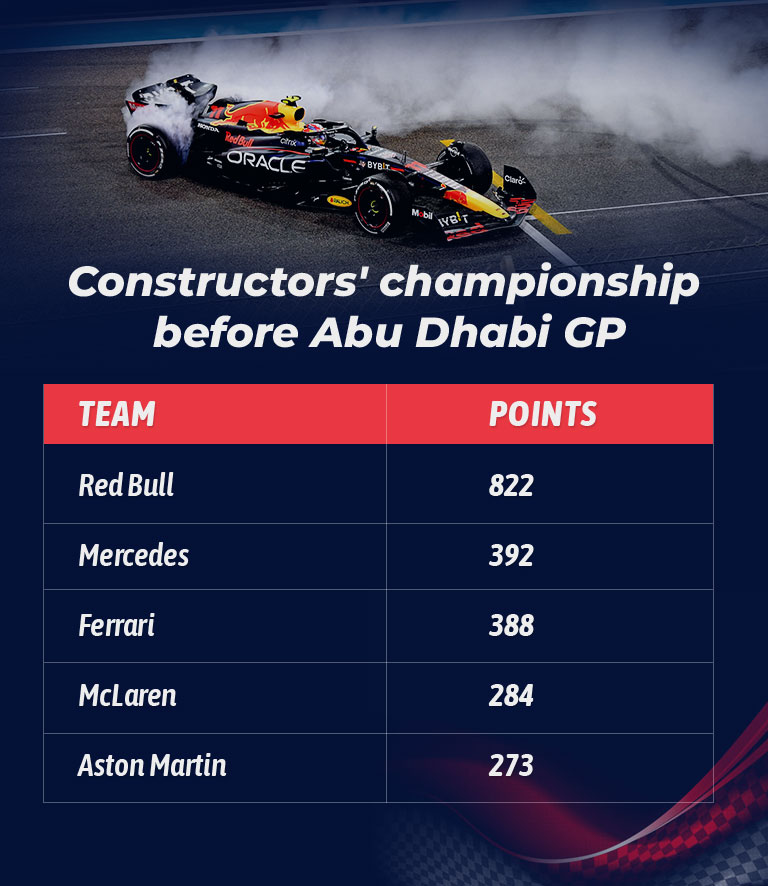
F1 Milestones,
Facts and Stats
A win in Abu Dhabi Grand Prix 2023 will fetch Lewis Hamilton a record eighth World Drivers' Championship title. Max Verstappen is chasing his fourth Abu Dhabi win in a row, and record-extending 19 wins in a 22-race season.
Ferrari hold the record for the highest number of World Constructors' Championships with 16 victories. Williams are in second position with nine and McLaren and Mercedes are third with eight titles. Red Bull Racing have six, including the 2023 win
Juan Pablo Montoya hit a top speed of 372.6kmph during the 2005 Italian Grand Prix while driving a McLaren-Mercedes car.

Sunday, October 24, 2004 Brazilian Grand Prix Sao Paulo
Image Credit: BMW Photo by John Townsend.
According to a change in rules for the 2021 season, a maximum of 26 cars will be allowed to compete. That would mean a maximum of 13 teams because each team is allowed to field two cars.
There have only been five woman drivers in F1 who competed between 1958 and the early 1990s. All of them drove incomparably bad cars. It started off with Maria Teresa de Filippis, then Divina Galcia, Lella Lombardi, Desire Wilson and Giovanna Amati.
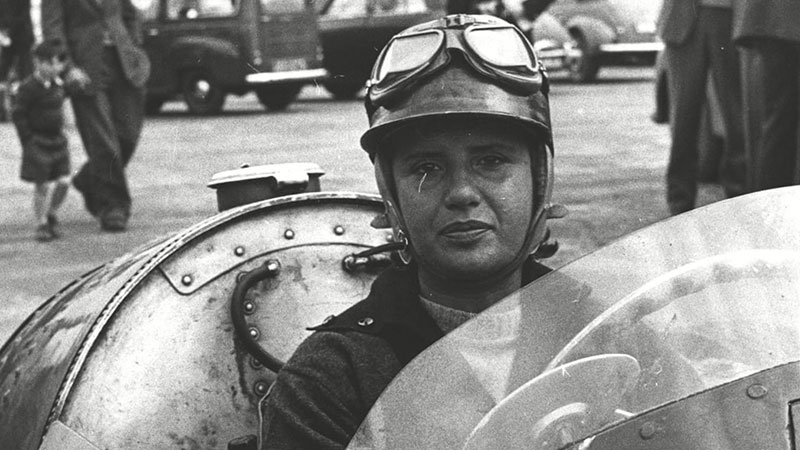
Maria Teresa de Filippis at the International Trophy meeting at Silverstone, 1959.
Image Credit: Shutterstock
The first world championship race was held in 1950 at Silverstone in the UK with the Alfa Romeo’s Guiseppe Farina winning the first World Drivers’ Championship that year.

First world championship race was held in 1950
Juan Manuel Fangio, an Argentine driver and Farina’s teammate, narrowly missed the championship title in 1950. But Fangio came back strongly to win the championship titles in 1951, 1954, 1955, 1956 and 1957. Fangio’s record of five championship titles was surpassed a full 45 years later when Michael Schumacher won his sixth World Driver’s Championship in 2003.
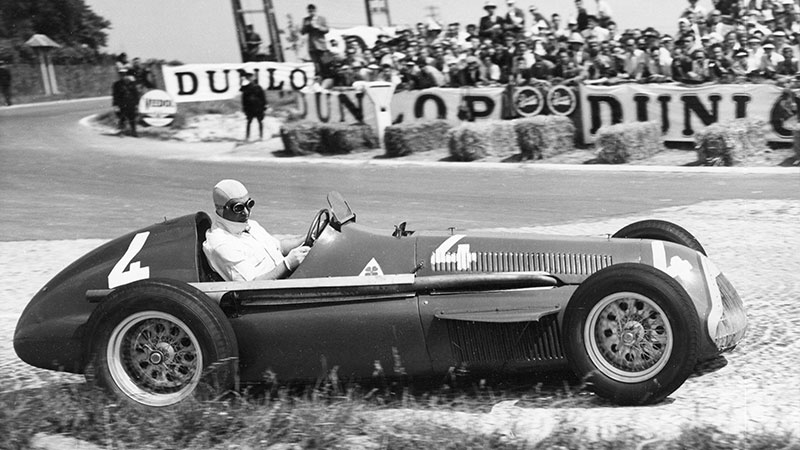
In this July 1, 1951 file photo Juan Manuel Fangio comes out of a bend at speed during the race, driving a supercharged 1.5 Liter Alfa Romeo during the Grand Prix D'Europe at Rheims, France. Alfa Romeo has joined up with the Sauber team for a return to Formula One after an absence of more than 30 years. Sauber announced Wednesday, Nov. 29, 2017 that it has reached a "multi-year technical and commercial partnership" with the Italian automaker, which is part of Fiat Chrysler Automobiles (FCA). From 2018, the team will be known as the Alfa Romeo Sauber F1 Team. " (AP Photo/File)
A F1 car is made up of a total of 80,000 components.

Image Credit: Shutterstock
When an F1 driver hits the brakes on his car he experiences deceleration which is comparable to a regular car driving through a brick wall at 300kph.

Image Credit: Shutterstock
Normal car tyres last approximately 60,000 to 100,000kms, but F1 racing tyres are designed to last only 90 to 120kms.

Image Credit: Shutterstock
At top speed, F1 tyres rotate 50 times a second.
